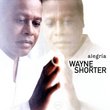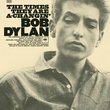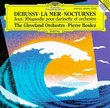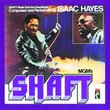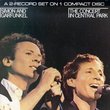| All Artists: Marian Mcpartland, Bill Evans Title: Piano Jazz Members Wishing: 1 Total Copies: 0 Label: Jazz Alliance Release Date: 11/29/1993 Genres: Jazz, Pop Styles: Cool Jazz, Modern Postbebop Number of Discs: 1 SwapaCD Credits: 1 UPC: 727489200423 |
Search - Marian Mcpartland, Bill Evans :: Piano Jazz
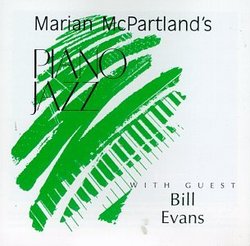 | Marian Mcpartland, Bill Evans Piano Jazz Genres: Jazz, Pop
|
Larger Image |
CD DetailsSimilar CDs
Similarly Requested CDs
|
CD ReviewsFor the Real Piano Lover! 12/05/1998 (5 out of 5 stars) "This disc is one of the many installments of Marion McPatland's Public Radio show "Piano Jazz". For me, a Bill Evan's fanatic, it is one of the best. To here him try to explain his "technique", and then to illustrate it, is wonderful. Marion's prodding questions serve to bring out the best in both of them. She is an obvious admirer - to this day. If you want to hear the intellect as well as the music of Evans, DON'T miss this disc! Two other standouts in this excellent series: 1) Dizzy (What can you say! - Listen to this one and you'll hear how the mind of a true genius worked!) 2) Henry Mancini (If you haven't learned to appreciate Mancini's great music, and uniquely identifiable tunes, you're missing out on something special)." Bill Evans as a humble person and a great artist Don O. | Canada | 12/29/2001 (5 out of 5 stars) "Bill Evans was a very modest man despite his enormous talent and the influence that he had over many jazz pianists of his time and the legions that would follow thereafter. In this episode of Marian McPartland's "Piano Jazz" series, recorded on November 6, 1978, we get a glimpse of Evans' musical mind and his self-deprecating assessment of his own capabilities.The CD opens with Bill Evans playing his best-known composition, "Waltz for Debbie," which he wrote when he was about twenty-four years old. The interview begins with the influential pianist saying that his left hand "is a little more confident." He then goes on to explain his approach to playing jazz.Marian McPartland does a good job of coaxing Evans out of his quiet shell but is wise enough to steer clear of him when he starts to improvise. On Cole Porter's "All of You," Evans illustrates his approach, particularly the 'displacement of notes and phrases.' After the exhilarating solos, McPartland quips, "That was wild! You displaced it so much I couldn't find a place to come in... I was afraid, if I come in wrong, I'm gonna throw this whole thing off!" Evans laughs humbly to McPartland's reaction.To anyone who plays even passable jazz piano, Evans' step-by-step demonstration of his approach on the Ray Noble composition, "The Touch Of Your Lips" is a rare, hands-on lesson. He explains in detail his use of the pedal point on 'G', the chord progressions, the modulation to E Major, and other nuances of his interpretation. At one point, McPartland exclaims, "Whew!" as Evans twists and turns the song.When asked whether he prefers to play with the trio or solo, Evans picks the latter but modestly admits, "I don't have the dimension to really be a solo pianist entirely... I just haven't expanded that part of my playing that much." Come to think of it, Evans recorded the Grammy-award winner solo piano album, "Alone" ten years earlier.The two pianists play together on Dave Brubeck's "In Your Own Sweet Way" and Gordon Jenkins' "This Is All I Ask." One interesting song is Henry Mancini's "Days of Wine and Roses." Both play the first chorus in F Major and then modulate the second in A-Flat, and then back to F Major again. It's a beautiful transition.The highlight of the album features Evans playing the Duke Ellington composition, "Reflections in D." Evans' bell-like harmonies and long melodic lines lend a sublime characteristic to the song. I held my breath as I listened to it for the first time.Towards the end of the show, Evans asks his host to play for him, a request that McPartland finds rather flattering, coming from a great jazz pianist. She obliges with a beautiful interpretation of "While We're Young" which impresses Evans so much. They end the show with a duet of Cole Porter's "I Love You."Evan's producer Helen Keane considers this album the best interview that Bill ever did. She's right. Hearing him play the piano is a delight. Listening to him explain his craft is a humbling experience." An excellent interview-concert with the artist philippe@pyramidcw.com | Montr�al, Canada | 12/15/1998 (5 out of 5 stars) "This record is a rare opportunity to hear Bill Evans comment on the evolution of his work and hear him give concrete examples of his jazz conceptions and techniques. This interview-concert is a must for every Evans fan. He plays tunes like "waltz for Debby", etc. It is very interesting to hear the artist talk about his music in a humble way. After listening to this album, you have the impression to know a lot more about Bill Evans and to have a better understanding of his work. Very good record..."
|

 Track Listings (18) - Disc #1
Track Listings (18) - Disc #1


